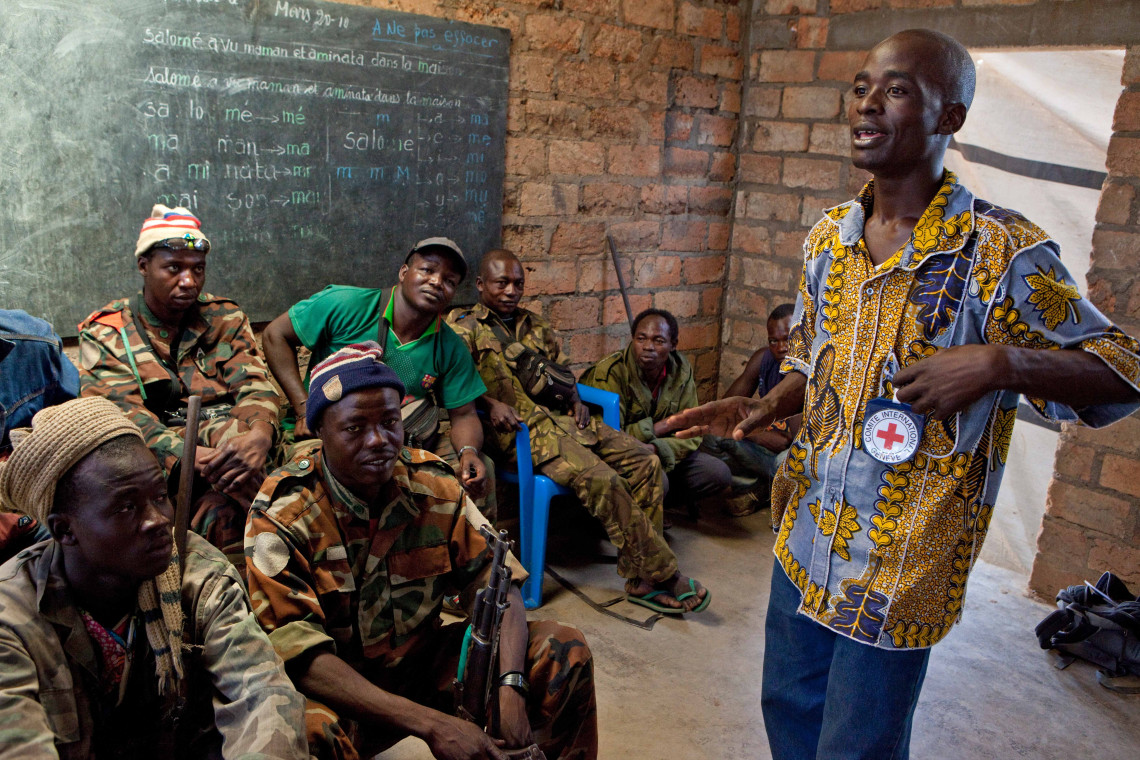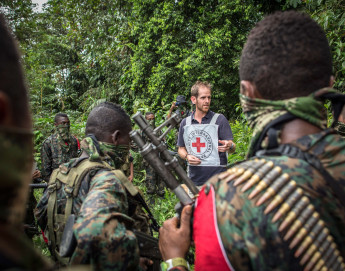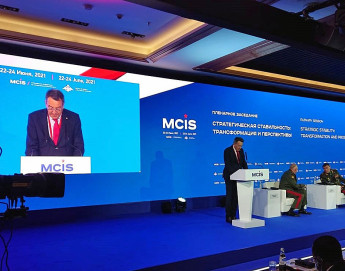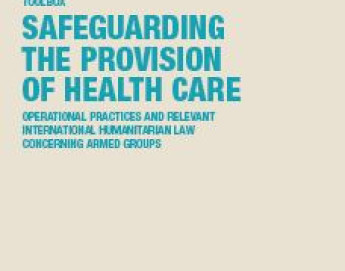
Why the ICRC talks to armed groups
To understand and meet the humanitarian needs of people living in these areas, the ICRC tries to establish a dialogue with armed groups and to assess the humanitarian services people have access to.
To further explain why it's important for the ICRC to better understand and engage with armed groups, Matthew Bamber-Zryd, ICRC's Adviser on Armed Groups, answered these four questions:
Why are armed groups important in the ICRC's operations?
The ICRC's mandate is to alleviate and prevent the suffering of persons affected by armed conflict and violence wherever they may be, including in areas controlled or influenced by armed groups. Life can be particularly difficult for civilians living in these areas and they can have increased humanitarian and protection needs. As a humanitarian organization, we take a neutral and impartial approach and engage with all parties to an armed conflict. This means we do not take sides: we provide assistance based solely on humanitarian need and talk to all sides to highlight the importance of respecting humanitarian rules. This is the only way we can be trusted by all parties, whether governments or armed groups.
How many armed groups does the ICRC talk to?
In 2022, the ICRC listed 524 armed groups that are important for us to consider in our humanitarian work. We had contact with two thirds of them. We work in highly insecure environments and the more we talk to armed groups, the more they know us, understand us, trust us, and allow us to work, the safer our staff is and the easier it is to meet the needs of affected civilian populations.
Is this work a secret?
Not at all. Engaging with armed groups is part of the humanitarian mandate officially given to the ICRC by all state signatories to the Geneva Conventions, and we frequently acknowledge and confirm this humanitarian engagement with all parties to a conflict. While we cannot share the details of our discussions with armed groups as they are very sensitive, we are always careful to ensure that everyone understands that this is how the ICRC works. When we meet with government authorities, for example, we are clear and transparent about this approach. It is very important to us that everyone we are accountable to understands that we engage with armed groups for purely humanitarian reasons. Without this engagement, the ICRC wouldn't be able to reach everyone suffering as a result of conflict or violence.
What challenges do you face when engaging with armed groups?
We face many. For example, in a single area there may be many different armed groups operating, all of which we need to talk to in order to do our humanitarian work safely. Every year, some groups split, new ones are created, and others disappear. This means it's always difficult to know exactly what armed groups are operating in a determined area and what's the best way to engage with them. It's important for our teams to follow these developments very closely and know the armed groups in each area.
Another challenge is misunderstanding about the nature and reasons for the ICRC's contacts with armed groups. In some cases, authorities are suspicious of any form of contact with armed groups, even though it is purely for humanitarian reasons. Around the world, there are mounting legal obstacles to engaging with armed groups which complicate the ICRC's work. For example, humanitarian activities should be exempt from counterterrorism measures, but that's often not the case.
In early 2021, the ICRC managed to deliver 135 tons of humanitarian aid to the Central African Republic (CAR). While this may seem like an easy task for a humanitarian organization to achieve, at that time, the country was experiencing a surge in violence that had displaced over 276,000 people[1]. The humanitarian needs were growing rapidly and the lack of access to the region due to insecurity meant that no humanitarian aid convoy was able to reach the people without an armed escort.
This was a problem because the ICRC advocates that humanitarian work must be dissociated from military operations to ensure security and restore law and order to regions affected by conflict[2]. Dialogue is always our first choice to ensure we are accepted and able to work in areas where conflict is active. And this is where Ibrahima Tounkara, the then head of ICRC's sub delegation in Bouar, CAR, comes in.
"We had one goal: to negotiate unrestricted humanitarian access with the armed groups. The negotiation was long and difficult. But the one golden rule that is non-negotiable for the ICRC to move its convoys into war-ridden territory is: we need to have security guarantees. The message we passed was that humanitarian access must be guaranteed and our security as well[3]", said Tounkara.
He recalls the dynamic of the conflict was complicated. "We were under a lot of pressure and things were tense. Our conversations were very long. But we needed to ensure we remained diplomatic. There are two things I've learned in my experience in the Sahel, the Lake Chad Basin and in Central African Republic: the dialogue with the armed groups is extremely important and that it's the ICRC, as an institution, that conducts the dialogue with armed groups. It's the institution that talks, not an individual. It's important to make that distinction and remember that these dialogues are not transactional. Armed groups have a responsibility to guarantee humanitarian access[4] [under International Humanitarian Law5]".
It was by following these golden rules that Tounkara succeeded in securing the ICRC the humanitarian access it needed to deliver 135 tons of humanitarian aid to over 276,000 people. It took 12 days for the convoy to travel approximately 400 kilometers, without any armed escorts.
This is only one of several results the ICRC has achieved over the years in its efforts to build and maintain dialogue with armed groups all over the world. We are able to do that because of highly skilled professionals that are committed to our humanitarian principles. They are equipped with invaluable knowledge and tools that help them ensure the security of ICRC's staff and operations. One of these tools is our annual report on our dialogues with armed groups.
1 Central African Republic: Situation Report, 2 March 2021 - Central African Republic | ReliefWeb
2 The ICRC and the use of armed guards - ICRC
3 Excerpts from the ICRC podcast: Humanitaires
5 Armed escorts to humanitarian convoys: An unexplored framework under international humanitarian law | International Review of the Red Cross (icrc.org)




